On December 19, 2024, at 10:00, the Interfax-Ukraine news agency hosted a panel discussion organized by the Ukrainian Experts Talks project. The topic of the discussion: “Information warfare: key narratives created and disseminated by Russian propaganda”.
At the beginning of the panel discussion, the results of the first wave of the study “Top 40 Ukrainian public figures quoted by Russian propaganda” conducted by the InfoLight.UA Research and Analysis Group were presented.
The study was conducted by monitoring the 5 most visited Russian websites and 100 other sources using the Osavul platform. More than 500,000 news items were analyzed, including those where statements by Ukrainian public figures became newsworthy. Manipulation was assessed by taking quotes out of context, distortion, neutral presentation, or even rare positive coverage.
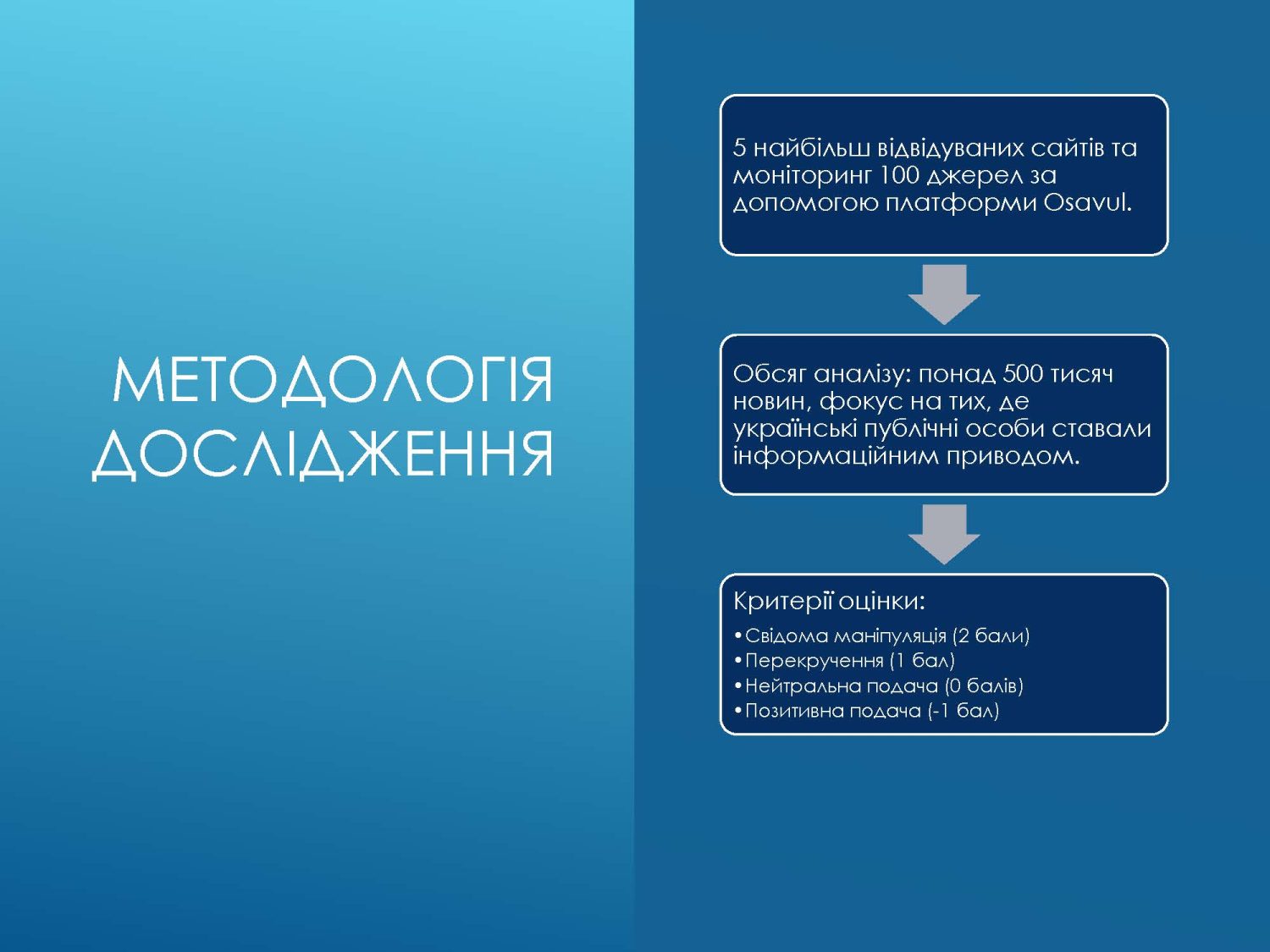
General conclusions of the study
Russian propaganda actively uses the statements of Ukrainian public figures to create a negative image of Ukraine. Analysts note that quotes are often distorted or presented out of context, which creates a distorted view of the situation in Ukraine among the audience of Russian media.
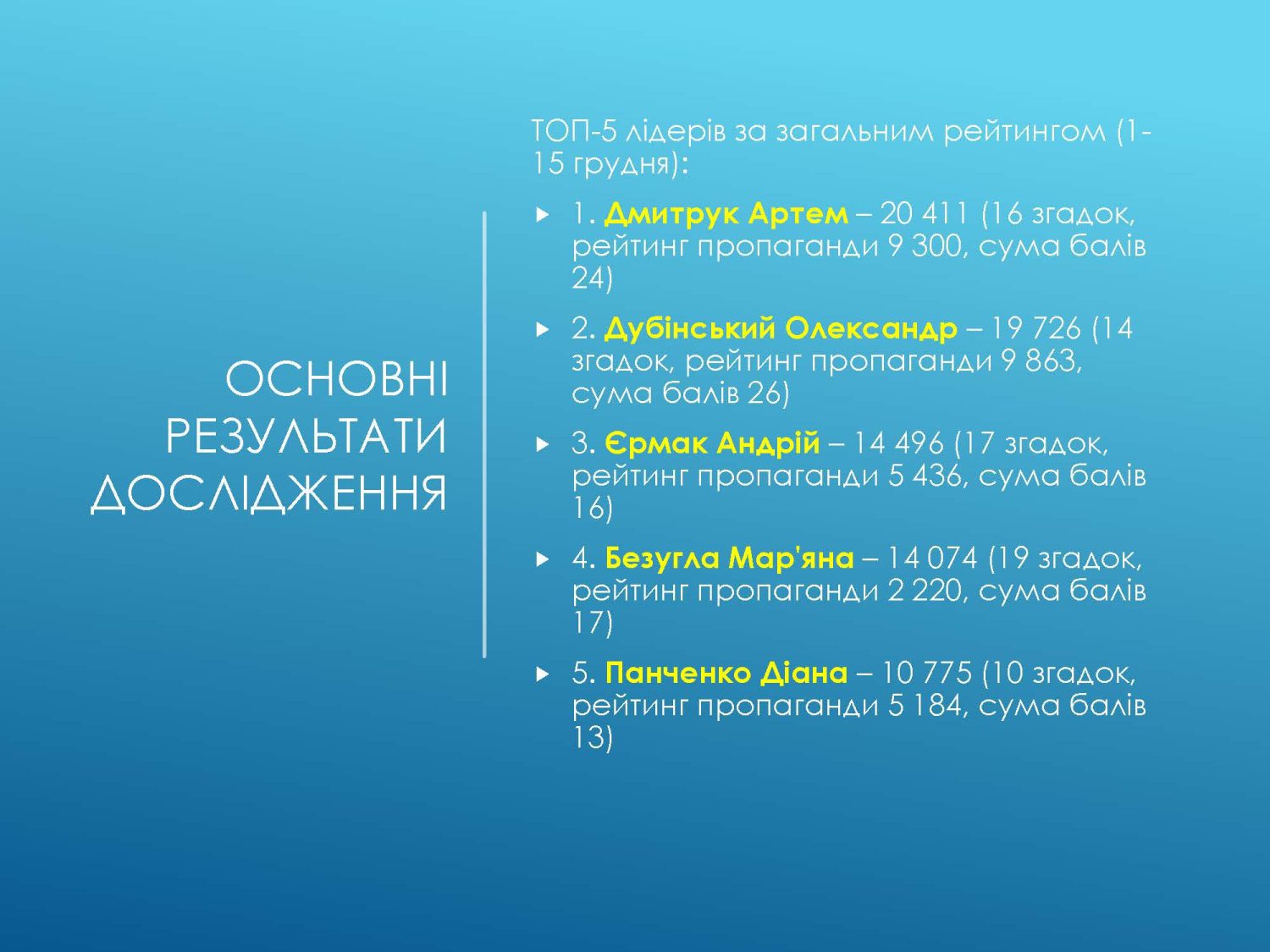
TOP-5 public figures whose statements were most often used by Russian media (as of December)
In December, Artem Dmytruk, Oleksandr Dubinsky, Andriy Yermak, Maryana Bezuhla and Diana Panchenko were the most quoted Russian propagandists. Their statements were used for manipulation, and the overall rating for the leaders exceeded 20 thousand points. These indicators indicate a targeted selection of people with critical or controversial statements.
The main methods of manipulation
The most common method is to take quotes out of context, especially in the statements of Oleg Soskin, Oleg Starikov, Oleksandr Dubinsky and Artem Dmytruk. Russian media replicate their statements, creating a non-existent reality. Critical politicians, such as Oleksiy Honcharenko and Serhiy Kryvonos, are in the spotlight for their harsh rhetoric that is easily manipulated.
Dynamics of citations of the rating leaders (according to the Osavul platform)
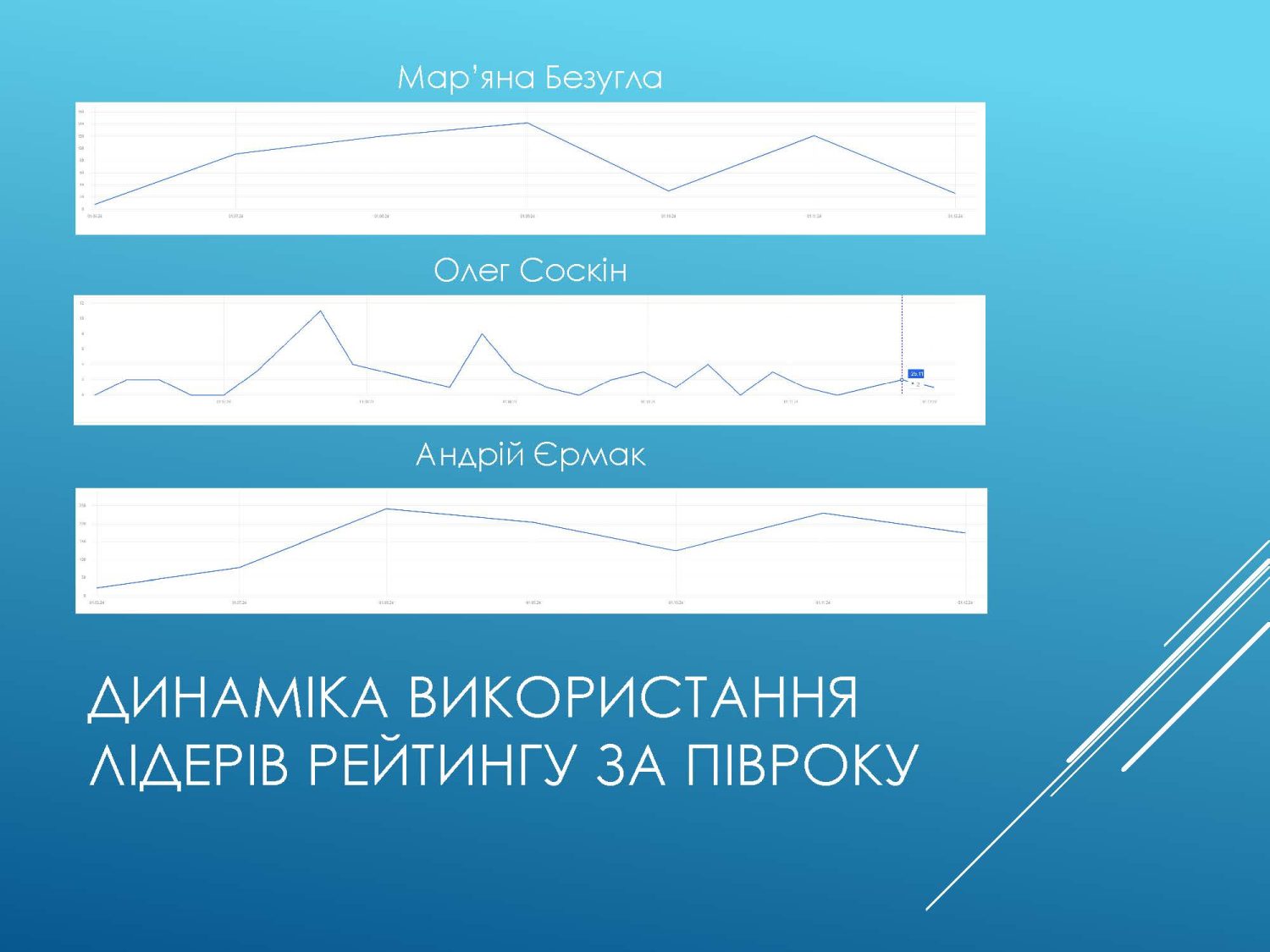
The number of mentions of individuals in the Russian media increased during times of social tension or key events. For example, critical statements about the war, mobilization, or energy were of particular interest to propaganda. This demonstrates the high level of adaptability of the Russian media to the information agenda in Ukraine.
Another reason for the change in dynamics is the involvement of new objects of manipulation to replace the “spoiled” ones.
Conclusions on categories of persons
Politicians are a key group for manipulation, as their public rhetoric is easily distorted. The military becomes a target of propaganda through critical statements or interviews that are used to form negative theses. Neutral or positive examples, such as Mykhailo Podoliak or Volodymyr Husar, are rare, but they demonstrate the possibility of effective communication confrontation.
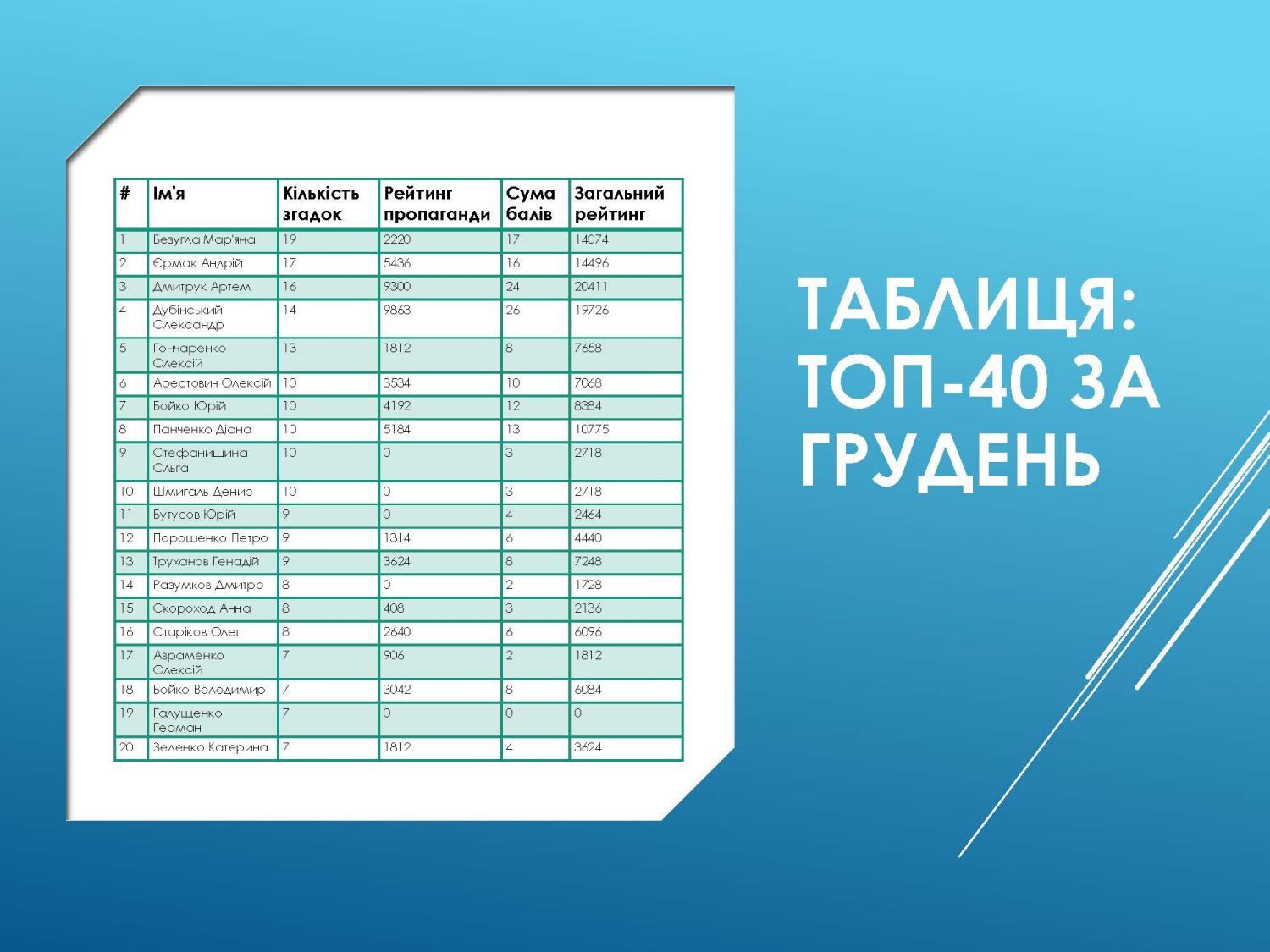
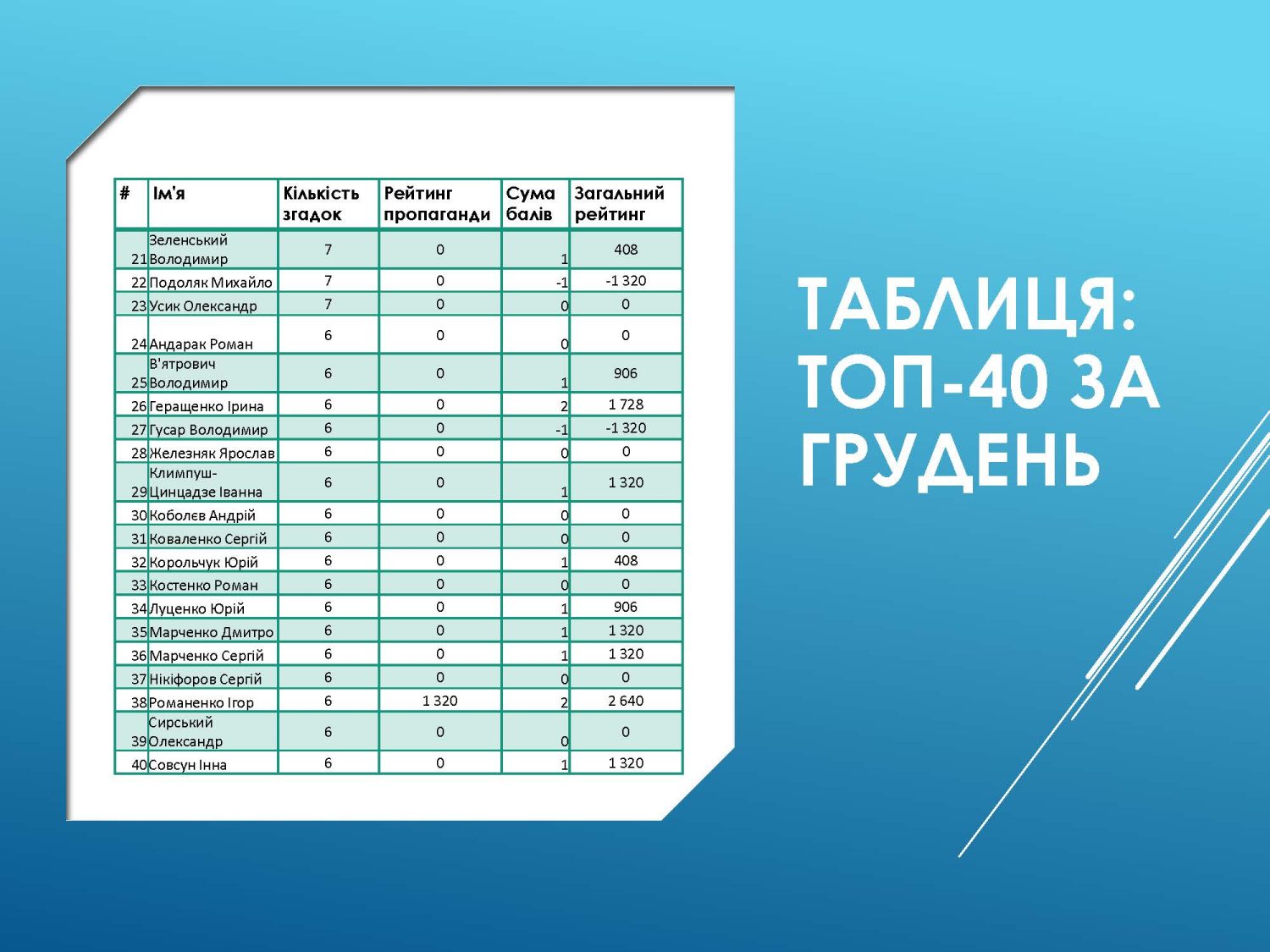
Recommendations.
Public figures should be careful how they phrase their statements, especially those that can be taken out of context. Ukrainian media should avoid spreading manipulative quotes and carefully check sources. Citizens should be critical of news, especially if it comes from sources known for propaganda narratives.
Presenting the results of the study, Yuriy Goncharenko, head of the InfoLight.UA Research and Analysis Group, noted that after the publication of the first study, analysts noted that some Ukrainian public figures had significantly reduced the number of statements used by Russian propaganda.
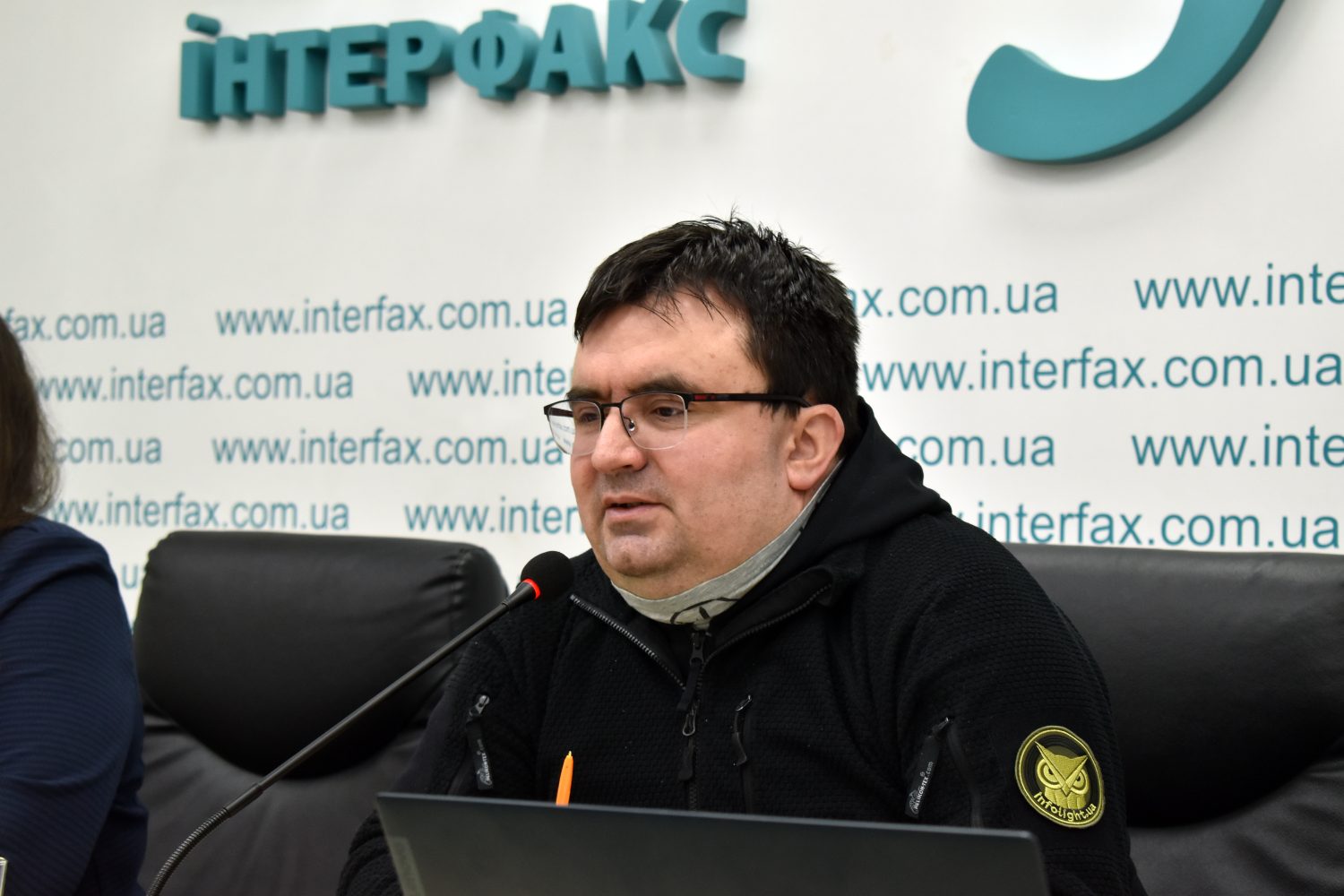
“Another characteristic feature of the Russian information and propaganda space is the deliberate disregard for Ukrainian military or politicians whose activities seem dangerous to the enemy. For example, Kirill Budanov is virtually absent from the Russian media. Oleksandr Syrsky appears very rarely, generally less than, for example, his public opponent Mariana Bezuhla. Similarly, for Russians, there are no events related to the success of the GUR,”he said.
When asked by journalists why it is so important to monitor Russian media and references to Ukrainians, Yuriy Honcharenko said that “firstly, a significant part of the Ukrainian Telegram is poorly translated Russian news, which means that Ukrainians read it as well.”. He also explained that even the editors of popular Ukrainian media do not shy away from taking news from the Russian media. It is also read, retransmitted and taken into account in Ukraine’s partner countries. “So if you can avoid being a hero of Russian propaganda, don’t be one,”Honcharenko summarized.
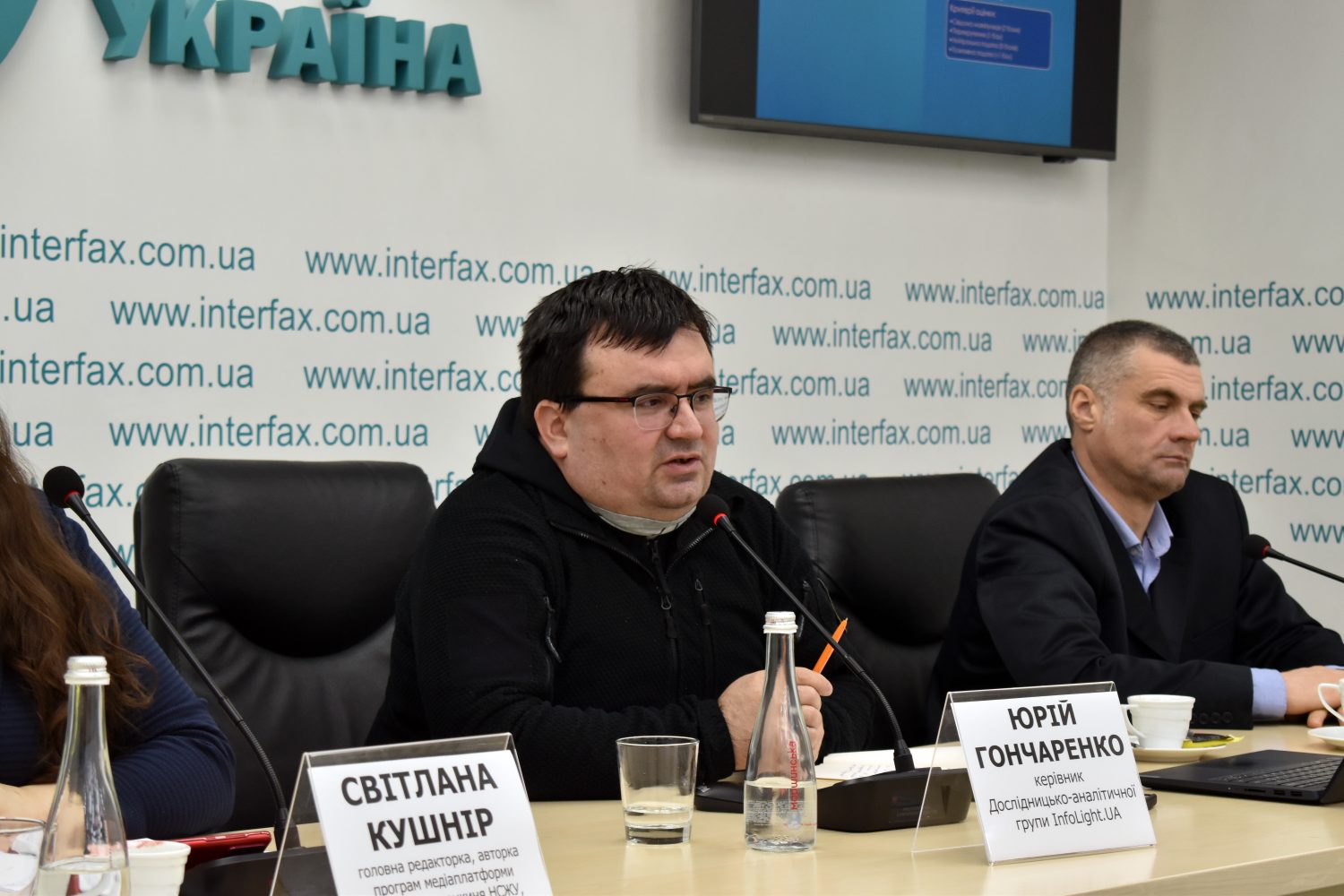
“In times of war, and especially in light of possible elections next year, it is important to know and understand Russian propaganda narratives. They are created by the aggressor and spread in Ukraine to weaken our society and its resistance. Politicians, political scientists, and journalists should not fall into propaganda traps set by the enemy in their rhetoric. Everything that the aggressor spreads in Ukraine must be identified and debunked,” – emphasized political scientist Volodymyr Manko.
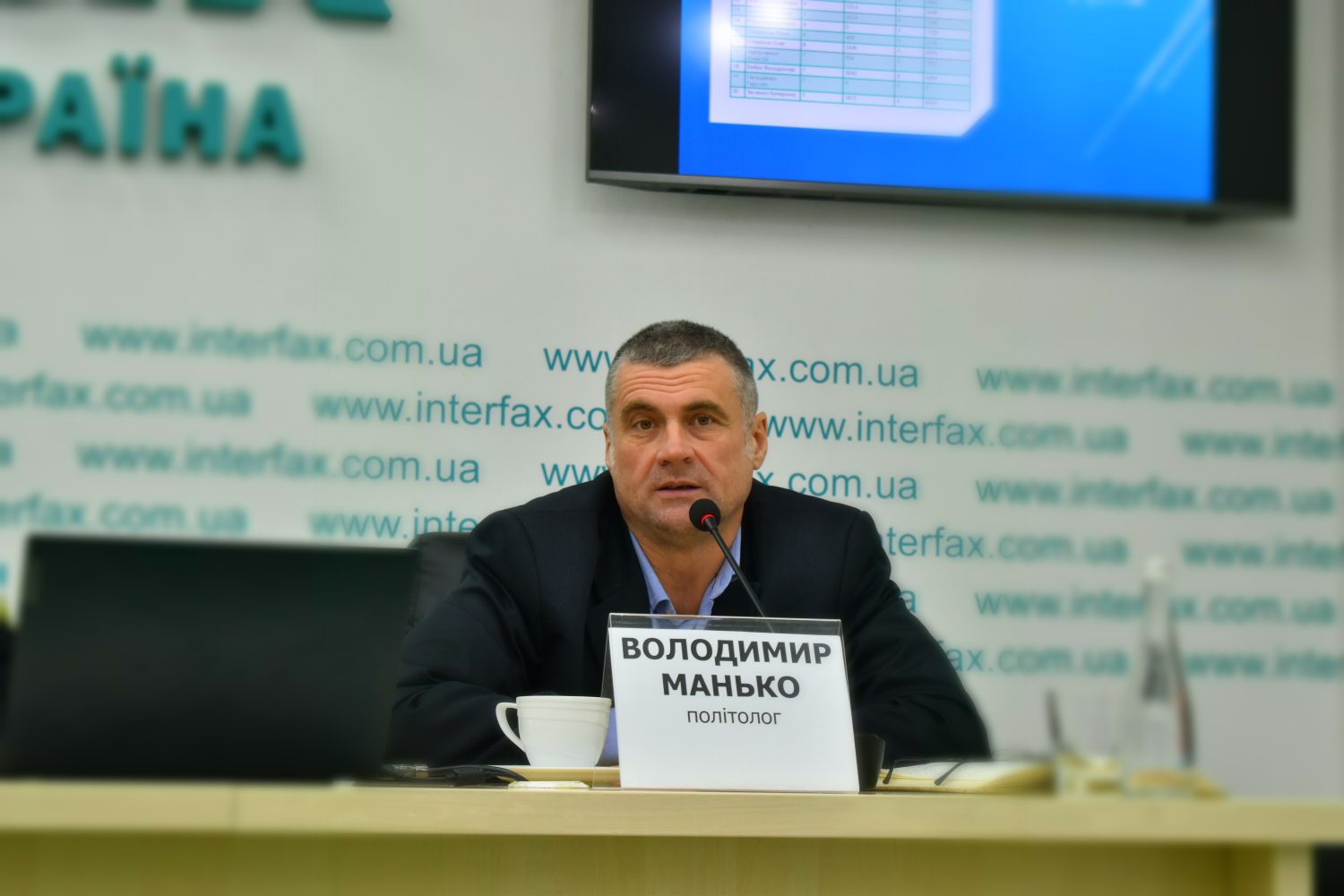
Andriy Yusov, representative of the Defence Intelligence of Ukraine, emphasized the importance of the work of think tanks, citing the example of the InfoLight.UA Research and Analysis Group, and assured that all such developments are used by the security and defense sector. He also detailed the key narratives created and disseminated by Russian propaganda that Ukrainian intelligence sees.
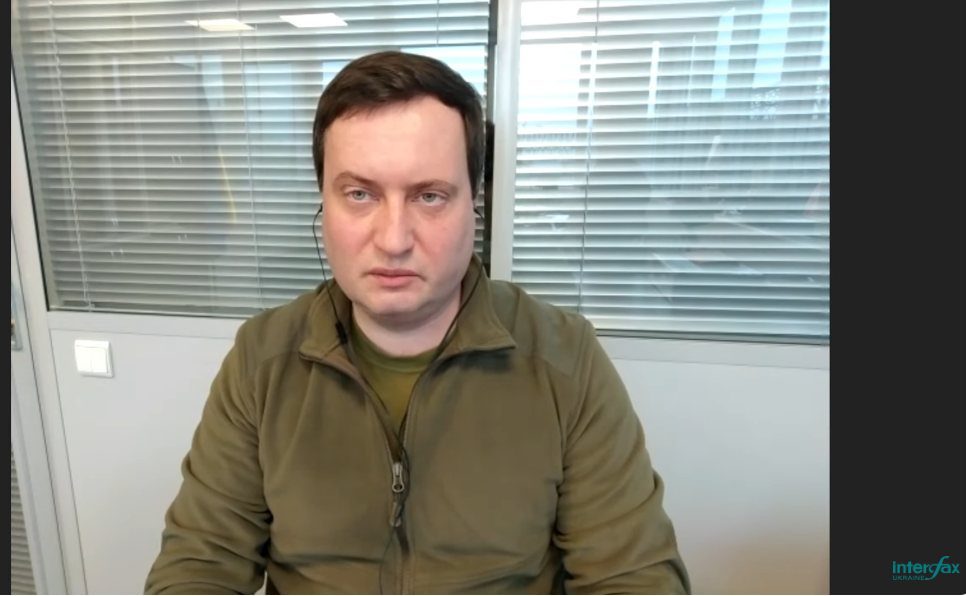
“What has been done is a good example of the down-to-earth, concrete work of analysts for the benefit of a common cause. Not flying somewhere in the sky with deeply thoughtful theses, but something that already gives food for real counteraction to the enemy,” Yusov noted.
In his opinion, “Often our problems, created by ourselves, are willingly used by the enemy, and so I would like to give some advice to our public speakers. The desire of Ukrainian people to assert themselves, to trump with a nice word is not a crime, but for the sake of the cause, one should first think about the consequences of what they say for our people, whether it will harm them, then whether and how our enemies will use it to hang noodles on their subordinates, and weigh whether the possible harm will not exceed the expected benefit for the good of Ukraine. Because all information coming from Russia can be regarded as propaganda. On behalf of the DIU, I promise to keep an eye on this in our ranks.”
Yuriy Goncharenko added that InfoLight.UA Research and Analysis Group sees one of its main tasks not only as a response to existing disinformation influences, but also as a proactive effort, which is helped by partnerships with technology platforms such as Osavul and support from donors such as the Hanns Seidel Foundation in Ukraine.
“We are a little bit at a disadvantage here, because you can tell us more about what you are working on, we can’t. We know much more. Although we have many opportunities, we act effectively and counteract the enemy, including in the information sphere. But I have to be brief.
So keep working, keep sending us useful research – we will use it properly. Don’t work on useless ones, so we can invest joint efforts in our victory. The Russians will not succeed in intimidating and driving all Ukrainians to Shchekavitsa. And we will be watching this closely.” Andriy Yusov added.
Svitlana Kushnir, editor-in-chief and author of programs for the socio-political media platform InterVizor, added: “First, I would like to recognize the work of my colleagues in creating this rating. If it becomes a regular feature, I think that not only our media will use it, but such rankings will be in demand by the entire sane media community.
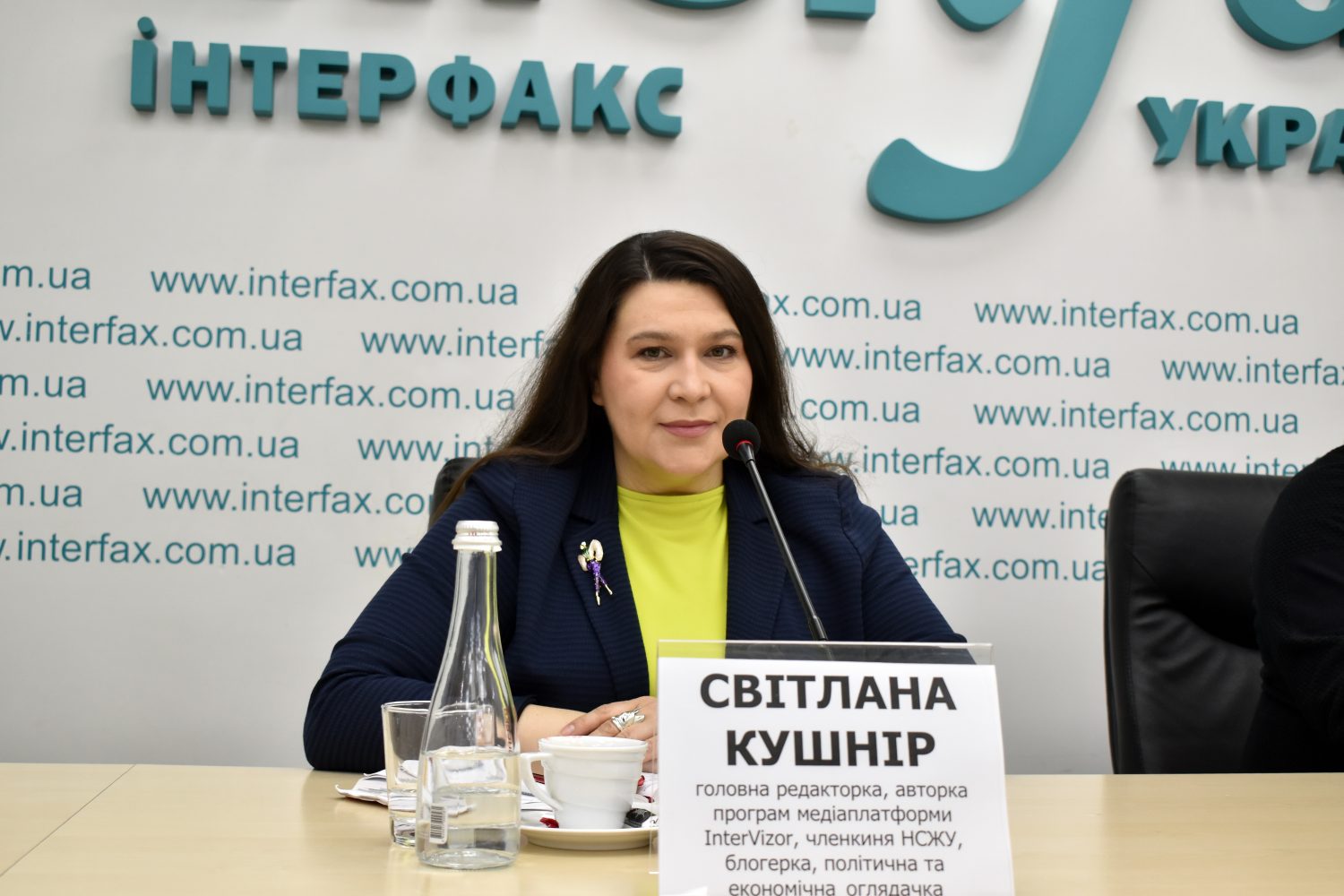
Secondly, it also disciplines commentators and the expert community to take responsibility for their own words. And here it should be noted that there is a gulf between censorship and responsible reporting. Regarding Russian narratives and their replication, and what this situation teaches us. Can you imagine how many Russians are working for a salary to monitor the Ukrainian information space? Everyone remembers the factories of the Olgyn trolls, so why don’t we start taking the initiative?
After all, we can play this game together. We can also create the “fog of war,” as Sun Tzu wrote in The Art of War. If we adopt the methods of the enemy, we will also find methods to counteract and neutralize criminal narratives. Of course, it won’t be easy; we need funding, an educational program for employees who will monitor the space, software, and so on. We need to engage foreign experts, showing them living examples of Russians distorting information.”

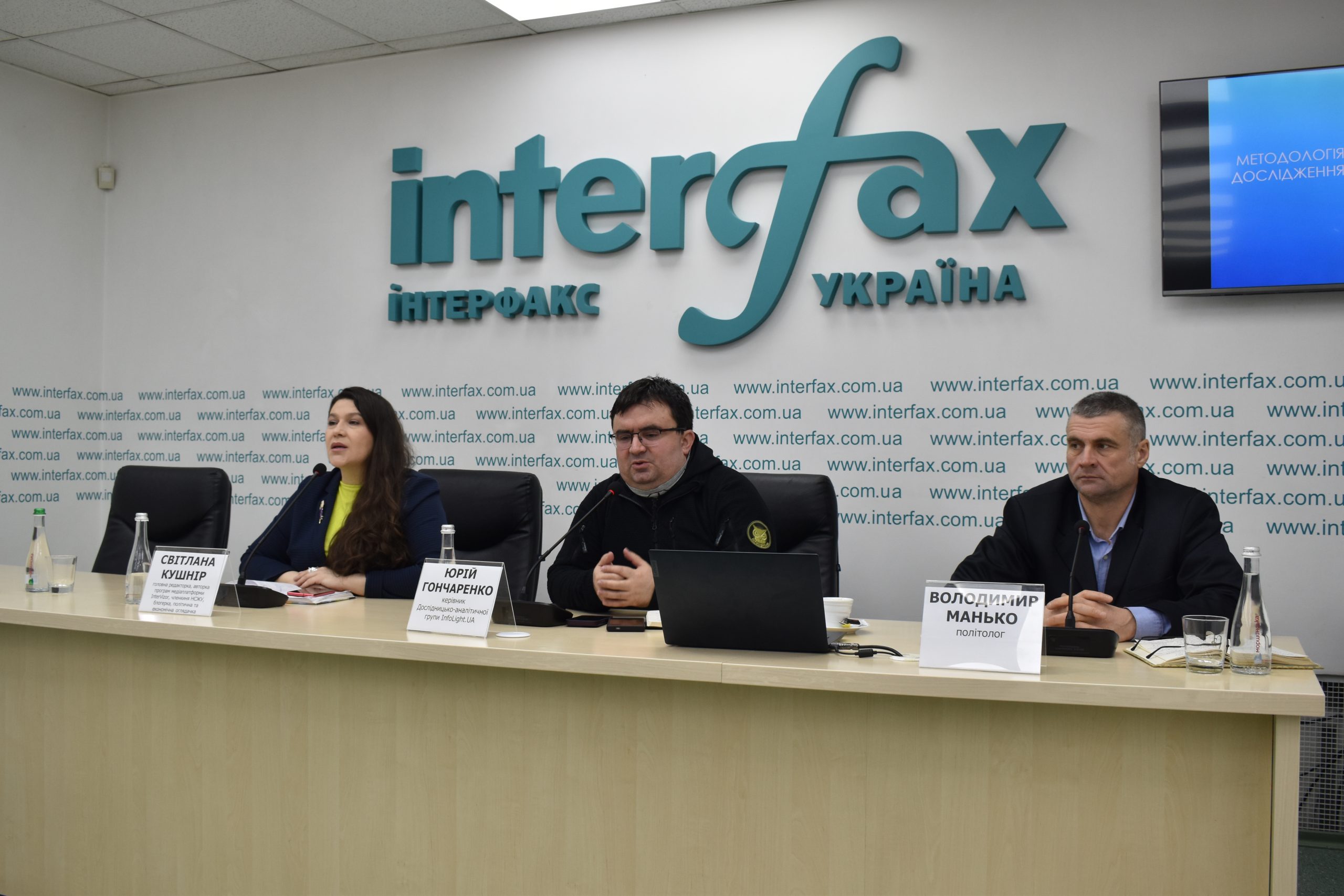
Leave a Reply